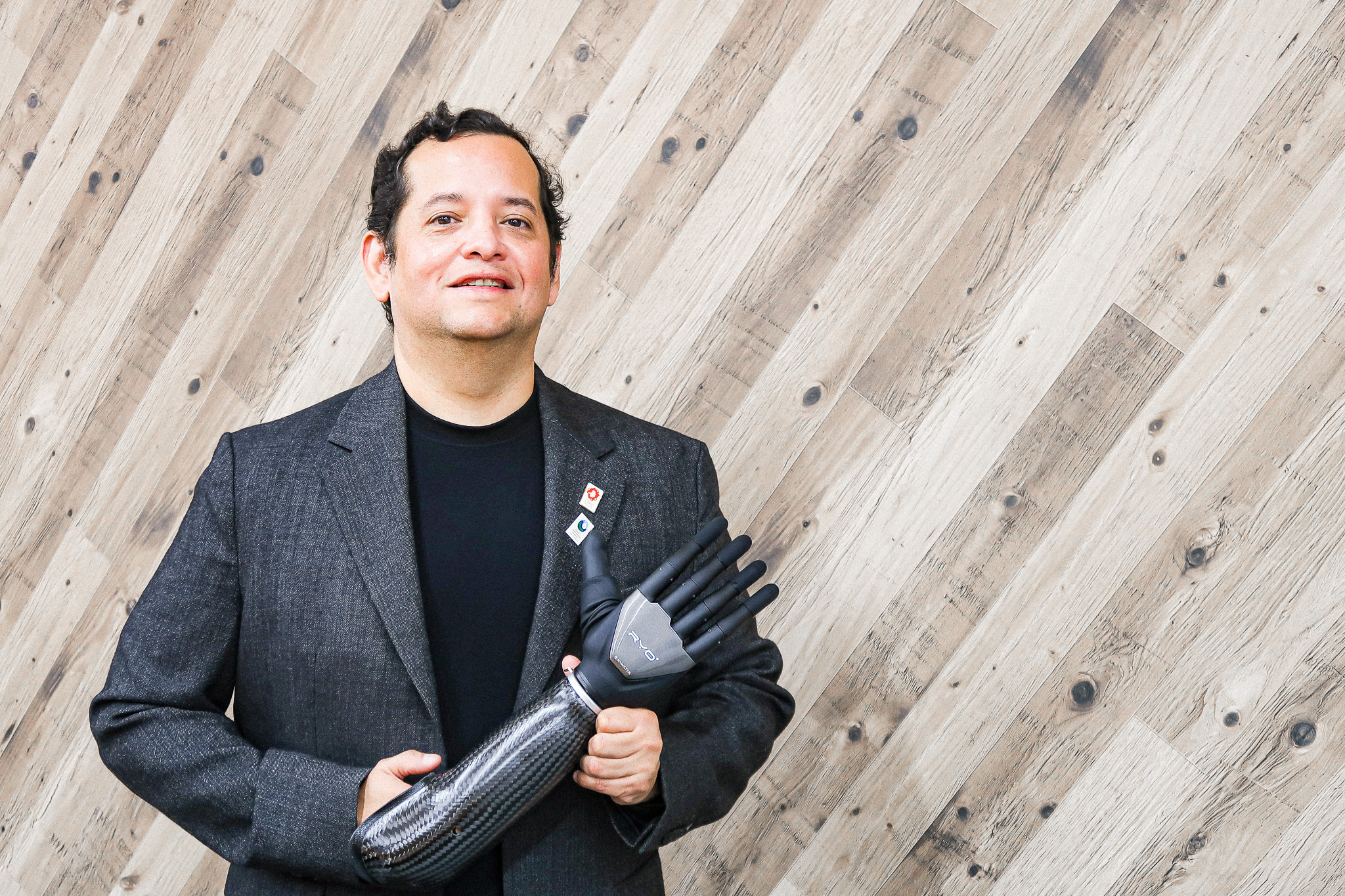Stay updated with the latest news, exclusive insights, and more.
.png)
We sat down with Alvaro Rios, founder and CEO of Kawatek, a startup developing robotic prosthetics in Osaka.
Sure. I was born in Colombia, but I’m also Mexican. I’ve been passionate about bionics since I was about five years old. I was fascinated by the idea of combining technology with the human body—helping people with disabilities improve their quality of life. I was inspired by The Six Million Dollar Man and Mazinger Z, the Japanese robot series.
I studied medicine and electronic engineering, and later earned a Master’s and PhD in biomedical engineering, focusing on neuroprosthetics. Unfortunately, developing new technologies in our countries is very difficult. Governments don’t invest in science and technology; they close departments, reduce budgets—it’s hard to innovate cost-effectively or quickly.
I opened my company in Mexico and worked in several medical device companies—Siemens, Dräger, Esaote Biomedical—living in Germany, the U.S., and Italy. Eventually, I decided to move to Japan.
.png)
Of course, the U.S. would have been easier, but I prefer Japan. It’s one of the few countries that truly cares about people with disabilities. They focus on quality of life and make sure companies don’t exploit people. I want my technology to be affordable and accessible—current solutions in the U.S. market are often prohibitively expensive. I also admire Japanese culture—the respect, the quality, the tradition. Japan is a guarantee of quality, even if things move slowly.
Our technology is now ready—we have patients in Japan, Ukraine, and other countries. The goal is to make bionic technology accessible worldwide: hands, eyes, rehabilitation systems. We’re developing AI- and avatar-based rehabilitation for people in remote areas who can’t access therapy.
In the long term, I want to move from helping to enhancing—creating technologies that expand human capabilities: improved vision, sensors connected to the brain, extra limbs. That’s why my company focuses on bionics and human augmentation.
But it’s not easy. The human hand has 27 degrees of movement, and replicating that requires many motors, which increases weight and power consumption. The average hand weighs less than 600 grams—if our prosthetic is heavier, people won’t use it.
The biggest challenges now are energy, motors, and control. To truly control a bionic hand, you need to detect brain signals and also give the brain sensory feedback—proprioception. Without that, users don’t know where their artificial hand is. So we’re developing non-invasive ways to improve control, aiming for hands as close as possible to human ones within the next 10–15 years.
Robotics and sensors are very advanced here, especially MEMS and photonics. My next-generation prosthetic, Ryo, is based on photonics—it connects to the body using light instead of electrical signals. The next version, Ryoshi, will be a “photonic hand.” Japan’s expertise in photonics is a big reason I came here.
The Japanese ambassador in Mexico encouraged me to come, saying Japan had nothing like what I’m developing. I first went to Tokyo, but when I visited Osaka, I saw Kansai is Japan’s main hub for medical devices and healthcare. So I decided to establish my company here.
I wouldn’t call them problems—more like challenges. With startup visas they can convince many people to come open companies here, but that’s the easy part. The hard part is staying—living here, communicating. The culture is complicated, and the language barrier too. Renting an apartment, opening a bank account, everything is difficult. Many people arrive happy, but after a year or two, they leave disappointed.
Language isn’t the biggest issue, culture is. Communication, relationships, even emails. Communication in Japan is often indirect—Japanese people “read the air,” as they say—and learning to read the air myself has helped me adapt and collaborate more effectively. You need to be able to interpret what was meant rather than what was said.
If you send a simple message like “See you at 9 p.m.,” it might seem rude. Everything here must be phrased delicately. So having Japanese staff who understand both cultures is essential. At first, I sent emails myself and got no replies. Once my Japanese assistant started sending them—with my name—I began receiving answers. These small things can make or break progress.
Every case is different, but having a local team is the most important thing—especially Japanese people who have lived abroad and understand both worlds. Purely domestic experience isn’t enough. You need people who can navigate between cultures.
As an example: the idea of responsibility is interpreted differently in Japan; it’s often approached in a more collective and implicit way. In Japan, simply saying, “you are responsible for this task,” to a subordinate or colleague is too heavy. Cultural misunderstandings like that can easily damage relationships.
Being aware of these nuances is important to maintain trust and harmony in professional relationships.

Japan has great potential, but it’s losing competitiveness. The country remains a leader in technology, but structural factors often make it harder for startups to move at global speed. The government needs to create special programs to make it easier and faster to develop and patent technologies here—something like the U.S. 510(k) process for medical devices.
Processes here take a long time, and if you’re a startup time is money. Waiting a year for a contract can destroy you. Japan needs to show that it’s truly committed to innovation—not just with visas, but with streamlined regulations and real support.
They’re shifting now from consumer electronics toward developing core technologies that other countries will use. If they can combine that with a more open, supportive environment for innovators, Japan could again become a global leader in technology.